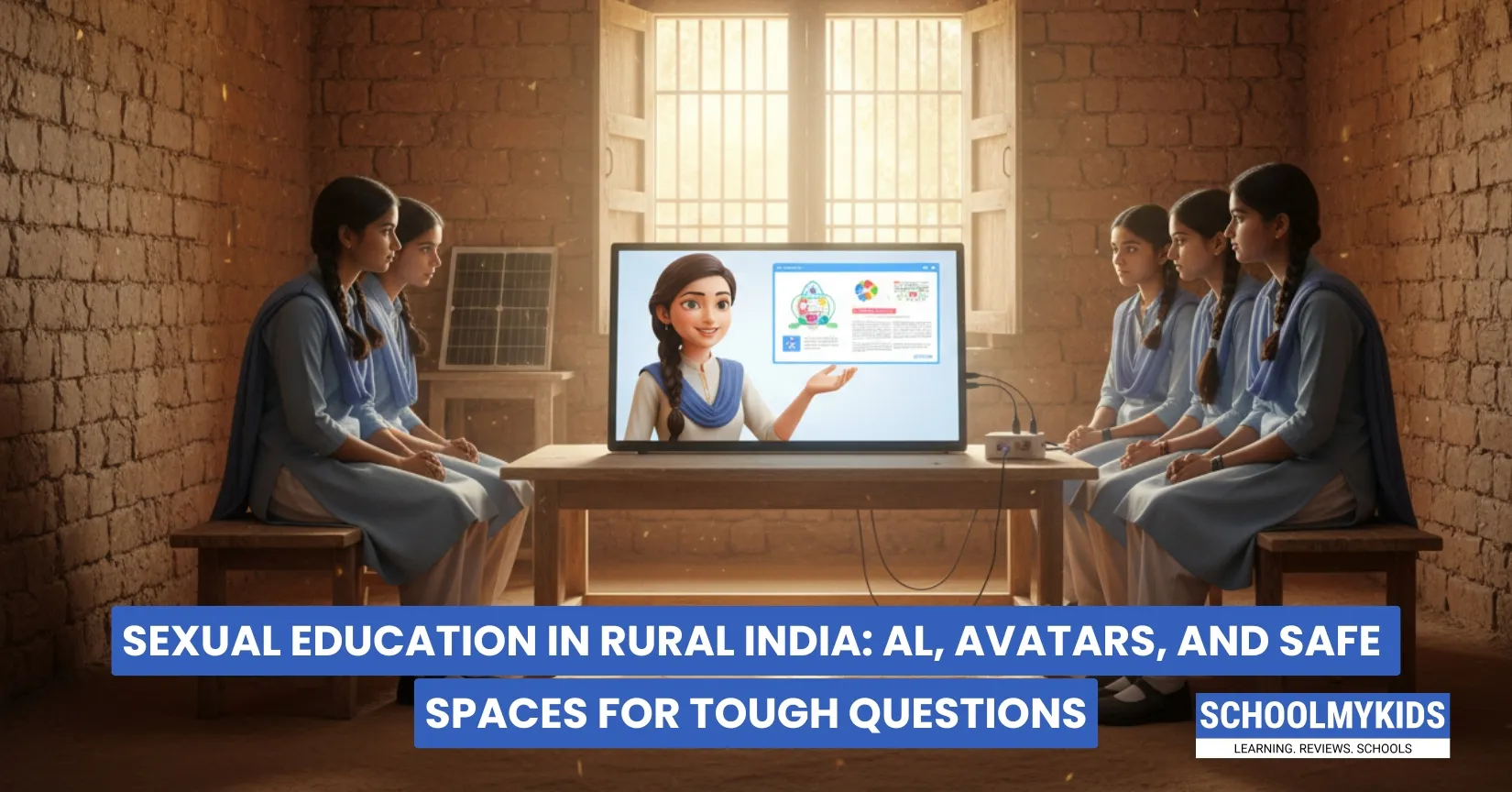Talking about sex education in India has always been uncomfortable. For many families, it’s a “don’t talk about it” topic. Especially in rural India, it’s surrounded by silence, shame, and embarrassment. But in a world where information reaches every smartphone screen, silence isn’t helping anymore.
The truth is, children and teenagers are already learning about these things from social media, random websites, or friends. Without proper guidance, that knowledge often gets mixed with myths or harmful beliefs. That’s where we, as parents, teachers, and society, need to step up. And surprisingly, technology, like AI avatars, may become our unexpected ally in this mission.
The Taboos that Built the Silence
In most Indian households, especially in rural areas, the idea of discussing sexuality or body changes is treated as something shameful or “not meant for children.” Generations have grown up believing that silence equals decency. But that silence has created confusion and stigma.
The majority of adolescents in rural India have no formal access to sexual education, leaving them dependent on incomplete or wrong sources. This lack of awareness leads to serious issues like early marriages, unsafe abortions, STIs, and even sexual violence that often goes unchecked because kids don’t know how to seek help.
The Supreme Court of India recently highlighted that sex education must begin early in schools, emphasizing the urgent need for structured learning before children turn to unsafe information online. But the question remains: how do we talk about such a sensitive topic in places where conversation itself feels forbidden?
The Change Technology Can Bring
Imagine a friendly digital avatar that speaks your local language, listens to questions without judgment, and provides accurate, age-appropriate answers on topics like puberty, consent, hygiene, and safety. That’s not a dream; it’s already happening.
A 2024 initiative called SUKHSANDESH, developed by researchers from IIT Delhi and Gram Vaani, introduced an AI-powered avatar-based platform designed for sexual education in rural India. This system aims to use regional languages and a voice-enabled “digital friend” that explains sensitive concepts with empathy and privacy.
Think of it this way: the same AI tool that helps working farmers check weather updates or kids learn math can now help them understand their bodies, relationships, and safety.
Why Safe Spaces are Non-Negotiable
Technology can guide, but the core of sex education is empathy. We cannot rely on digital tools alone. Children still need safe, trusting spaces where they can ask “awkward” or “embarrassing” questions without shame.
Parents and teachers can play a huge role in building these spaces. It starts with small steps:
- Instead of scolding, listen first when a child asks a question.
- Normalize curiosity; if they’re asking about body changes or relationships, it means they trust you.
- Use simple and honest language that fits their age.
- Correct misinformation kindly instead of responding with fear or anger.
In schools, teacher training is key. Many educators themselves feel uncomfortable or unprepared to talk about topics beyond biology lessons. True change will come only when both teachers and parents receive the right support and sensitivity training to handle these discussions with care.
Understanding the Generational Divide
The older generation grew up avoiding these conversations. For them, modesty meant silence. But for today’s children, silence is dangerous. They live in an online world where a single click can open confusing or explicit content. Without guidance, they may start believing distorted ideas about relationships, consent, or body image.
This is not about promoting exposure; it’s about educating for protection. Proper education helps children differentiate between respect and manipulation, curiosity and exploitation.
If we want to raise confident, responsible adults, we need to teach them the right words, values, and understanding early on. Keeping it a mystery doesn’t protect them; it leaves them vulnerable.
Building a Future of Knowledge and Kindness
The good news? India is slowly changing. NGOs, educators, and now even AI developers are stepping in. Avatars are creating anonymous learning spaces where children can ask what they never dared to ask before.
But beyond technology, it’s our mindset that needs to evolve. As parents and teachers, we must remember that talking about sexual health does not corrupt innocence; it protects it.
Imagine a rural classroom where kids can log into an interactive avatar chat in their local language, learn about body autonomy, periods, consent, and respect, all without feeling fear or shame. That’s the vision we should be moving toward.
Sexual education in rural India is not a luxury; it’s a need. And perhaps, for the first time, AI may succeed where humans hesitated, in listening without judgment. But the ultimate success will depend on us, whether we can create homes and classrooms where questions about the body and mind are met with understanding, not silence.









Be the first one to comment on this story.